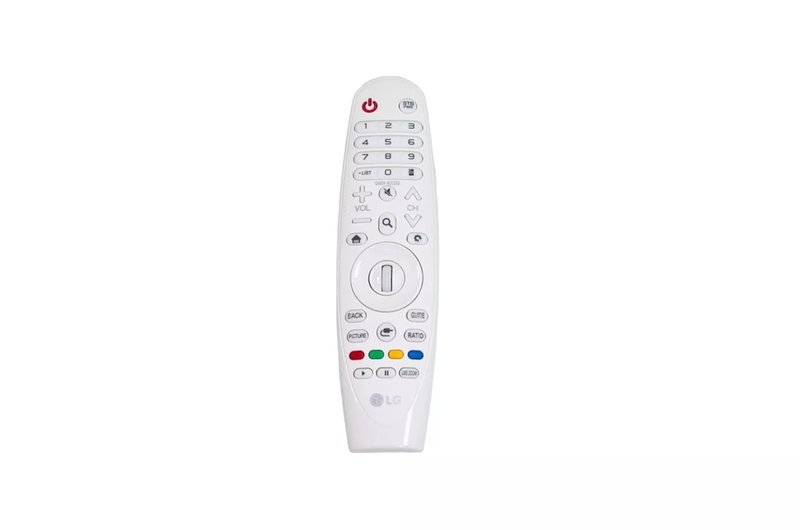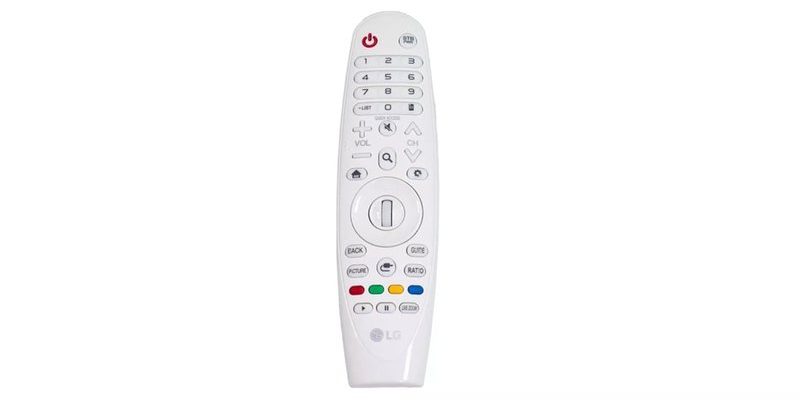
That’s the dream, right? But tech gear likes to play by its own rules. If you’re wondering whether your LG projector remote can control your Roku TV, you’re not alone. Many folks hit this crossroads, hoping for a magic “one remote for all” solution. Let’s untangle what really happens when you try to mix and match these remotes, and break down what’s possible, what’s not, and what you can actually do to make your life easier.
How LG Projector Remotes Work (And Why That Matters)
Here’s the thing: not all remotes are built the same way, even if they look suspiciously similar. LG projectors come with their own unique remote controls, designed specifically for LG’s hardware. These remotes usually send commands via infrared signals—those little invisible bursts of light you can’t see, but your devices can.
But there’s more to it. LG uses specific codes for their remotes, sort of like a secret handshake between the remote and the projector. If you try to use that same remote with a different brand—or a totally different device, like a Roku TV—there’s no guarantee the codes are even in the same language. The result? Pressing “power” on your LG remote might just do… nothing at all on your Roku.
So when you grab your LG remote and point it at your Roku TV, you’re usually out of luck. These remotes are programmed to communicate with LG devices only, unless there’s some special compatibility built in (which, honestly, is pretty rare unless you’ve got a universal remote in disguise).
How Roku TVs Handle Remote Signals
Now, let’s flip the script and look at Roku TVs. Most Roku TVs also use infrared technology for their remotes, and newer models sometimes lean into Wi-Fi or Bluetooth for fancier stuff (voice commands, private listening, and so on). But here’s where things get tricky: Roku has its own set of infrared codes. These aren’t the same as LG’s, so they don’t speak each other’s “language.”
Even if the two remotes use the same kind of signal, the *code* itself is what matters. Think of it like two people shouting instructions in completely different languages—nobody’s getting the message.
There *are* some TV brands that team up with Roku for smart TV software, but that doesn’t automatically mean you can mix remotes across brands. LG, specifically, doesn’t make Roku TVs (they have their own webOS smart TVs), so any crossover is purely accidental or thanks to some universal remote trickery.
What About Universal Remotes? Are They the Answer?
Let me explain something that saves a ton of headaches: universal remotes. These little gadgets are the Swiss Army knives of the remote world. They’re designed to work with almost any device, as long as you can program in the right code or follow the syncing process.
If you’re set on controlling both your LG projector and Roku TV with a single remote, investing in a good universal remote makes way more sense than hoping your LG projector remote will magically work with Roku. Popular brands, like Logitech’s Harmony or even some of the newer budget-friendly remotes, come loaded with massive code libraries.
Here’s how it usually works:
- You enter a code for your device (both LG projector and Roku TV should be supported on most universal remotes).
- The remote “learns” which commands to send for each device.
- No more remote juggling. You just switch modes and control whichever device you want.
It’s not perfect—for example, sometimes button layouts are clunky or the pairing instructions read like ancient scrolls—but it beats the remote pileup any day.
Can You Sync or Pair an LG Projector Remote With Roku TV?
You might be wondering, “Okay, but can I *pair* my LG projector remote with my Roku TV by changing something in the settings, or maybe using a special code?” That’s a totally fair question, and I’ve seen people try everything from mashing buttons to searching YouTube for secret pairing tricks.
Here’s the reality: LG projector remotes are not designed to sync with Roku TVs. There’s no hidden pairing process, no universal code that unlocks the magic, and no settings tweak that’ll suddenly let your LG remote control your Roku. They’re just not compatible by default. The remote’s “brain” can’t communicate in Roku’s language, so pressing buttons on your LG remote will do nothing on your Roku TV.
There are some rare cases where very basic commands like power or volume *may* work if your devices happen to use standard infrared codes for those common functions. But honestly, that’s a fluke, not a feature. Don’t count on it—especially for things like navigating menus, launching apps, or controlling playback. If it works at all, it’ll be by pure chance, not because the manufacturers intended it.
Troubleshooting: Why Isn’t It Working?
Let’s say you’re still determined to try, or maybe you’re experiencing weird behavior where your LG projector remote *sort of* affects your Roku TV. Sometimes, tech can get a little wonky, especially if devices are close together or share similar IR frequencies.
A few things you should check:
- Battery: Dead or dying batteries can make any remote unresponsive, so pop in fresh ones just to rule it out.
- Line of Sight: Since these remotes usually use infrared, anything blocking the path—like your cat, the coffee table, or a stack of mail—can keep signals from reaching the TV.
- Interference: Sometimes, sunlight or other remotes can cause interference. If other devices are acting strange, try using your remotes in different lighting or at different angles.
But if you’re hoping your LG projector remote will *consistently* run your Roku TV, it’s probably not going to happen. If it does, buy a lottery ticket, because you just beat some serious odds.
Alternatives: Smart Remote Apps and Other Solutions
Okay, so your LG remote isn’t a magic wand for your Roku TV. But you’re not totally out of luck. If you’re anything like me, you probably have your phone in your hand more than your remote anyway.
Many newer devices, including Roku TVs, support smartphone remote apps. The official Roku app, for example, turns your phone into a full-featured remote—complete with keyboard typing, private listening (with headphones), and app navigation. That means you can control your Roku TV from your phone, even if you lose your old remote in the couch cushions for the third time this week.
There are also universal smart home remotes and hubs that sync everything together—TVs, projectors, sound bars—all in one app or device. These tend to cost a bit more, but if you’re a “smart home” enthusiast, it’s pretty fun to control everything from your phone or even with your voice (“Hey Google, turn on the projector and play Netflix!”).
Why Remote Compatibility Matters (and When It Doesn’t)
Let’s be honest—nobody wants more clutter or more confusion. Remote compatibility seems like a small thing, but when you add up all the minutes you spend hunting for missing remotes, figuring out which one turns on which device, or just wishing things would “just work,” it can be a real headache.
If you’re setting up a home theater or just want an easier life, it’s totally normal to hope your remotes can do double duty. But most of the time, strict brand loyalty means remotes only play nice with their own kind. The only real shortcut is a universal remote, a smart home hub, or your trusty smartphone app.
Still, understanding the limits can save you a lot of frustration (and button-mashing). If you expect your LG projector remote to work with your Roku TV out of the box, it’s not going to happen. But with a little creativity—and the right tools—you can streamline your setup and make things a lot less annoying.
Wrapping Up: Finding the Best Remote Solution for Your Setup
If you came here hoping for a magical fix, I wish I could hand you one! The simple truth? LG projector remotes are *not compatible* with Roku TVs. They use different codes, different tech, and don’t have a way to sync or reset to work together. Sometimes technology just likes to keep things complicated.
But you’ve got options. Universal remotes, smart apps, or even just embracing multiple remotes if you must—they’re all solid paths forward. The big takeaway? Don’t waste time trying to force compatibility where it doesn’t exist. Focus on what works for your space, your needs, and your sanity.
At the end of the day, your movie night should be about relaxing, not remote-wrangling. And hey, at least that gives you a good excuse to upgrade your setup—or finally find that mysterious third remote hiding under the couch.
